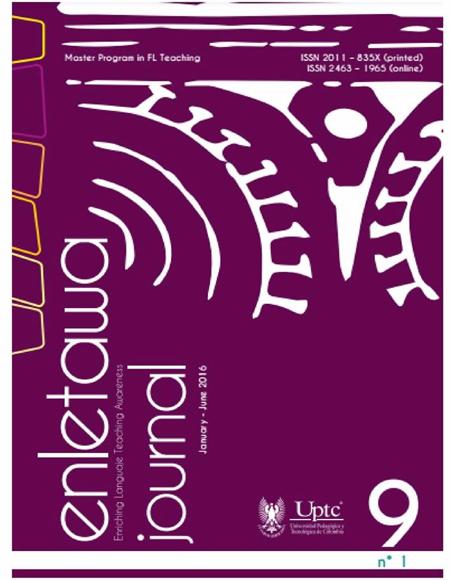Decolonizing Language Teachers’ Teaching Practices through a Postmethod Pedagogy

Resumen
This article presents a critical and theoretical reflection upon a pedagogical proposal which considers an EFL teaching practice. The target pedagogical experience relies on the first step to starting decolonizing language teachers’ teaching practices in the context they live in. Understanding that decolonizing teaching practices is a continuous process of reflection that involves decision-making, awareness of the students’ needs, and the context in which they are immersed. Firstly, the document will present some of the authors’ insights about language policies as the National Bilingual Program (PNB). Secondly, the manuscript addresses the teaching approach in which the proposed activities are embedded as a means to stress the necessity to start decolonizing pedagogical practices. Thirdly, the manuscript delves into Kumaravadivelu’s particular perspectives of Method and Post method pedagogy in language teaching. Finally, there will be some reflections about what language teachers do for engaging students in their own language learning providing meaningful practices, and what they have constructed about decolonization.
Palabras clave
Foreign Language Teaching, Local Knowledge, Particularity, Possibility and Practicality
Citas
- Antony, E. M. (1963). Approach, method, technique. English Language Teaching. (p. 63–64). DOI: https://doi.org/10.1093/elt/XVII.2.63
- Carvajal, N, E. (2011). Teaching, Learning and Assessment: Isolated practices? Enletawa Journal. Maestria en Docencia de Idiomas.
- Freire, P. and Faundez, A. (2013). Por una Pedagogía de la Pregunta. Crítica a una educación basada en respuestas a preguntas inexistentes. Buenos Aires. Grupo Editorial Siglo XXI. Pp. 66-160. Authors’ translations
- Feiman-Nemser, S., and Floden, R.E. 1986. The cultures of teaching. In M.C. Wittrock (ed.), Handbook of Research on Teaching, 3rd ed. New York: Macmillan, 505-26.
- Halliday, M.A.K. ( 1979 ). El Lenguage como Semiótica Social. La interpretación social del lenguaje y del significado. México. Fondo de Cultura Económica.
- Halliday, M.A.K. ( 1973 ). Explorations in the functions of Language. London. Arnold.
- Kroskrity, P. V. (2000). Regimenting languages: Language ideological perspectives. In P. V. Kiroskrity (Ed.), Regimes of language (pp. 1–34). Santa Fe, NM: School of American Research Press.
- Kumaravadivelu, B. (2003) Beyond methods: micro-strategies for language teaching. Yale University press. 5-42.
- Kumaravadivelu, B. (2006) Understanding Language Teaching. From method to Postmethod. ESL and Applied Linguistics Professional Series. San Jose State University.
- Mckay, S. (2002) Teaching English as an international Language: Rethinking goals and perspectives. Ney York University Press. June 2003, Vol 7, number 1.
- Mclaren, P. and Kincheloe J. (2008) Critical Pedagogy: where are we know? Barcelona. Colección Crítica y Fundamentos.
- Pass, S. (2004). Parallels paths to Constructivism. Jean Piaget and Lev Vigostsky. Library of Congress cataloging in publication Data. United States of America.
- Programa Nacional de bilingüismo Colombia 2004-2019. Inglés como lengua extranjera, una estrategia para la competitividad. Ministerio de Educación Nacional.
- Quintero, A. y Guerrero, C. (2013) “Of being or not being”. Colombian Public Elementary School Teachers´ Oscillating Identities. Bogotá. How Journal, 20 (1), 201.
- Sánchez, J. A. (2013) Bilingüismo en Colombia. Centro de estudios Económicos Regionales. Banco de la Republica. Cartagena de indias, Colombia.
- Westbrook, R (1993) John Dewey and American democracy. Ithaca, Cornell Universiry Press.